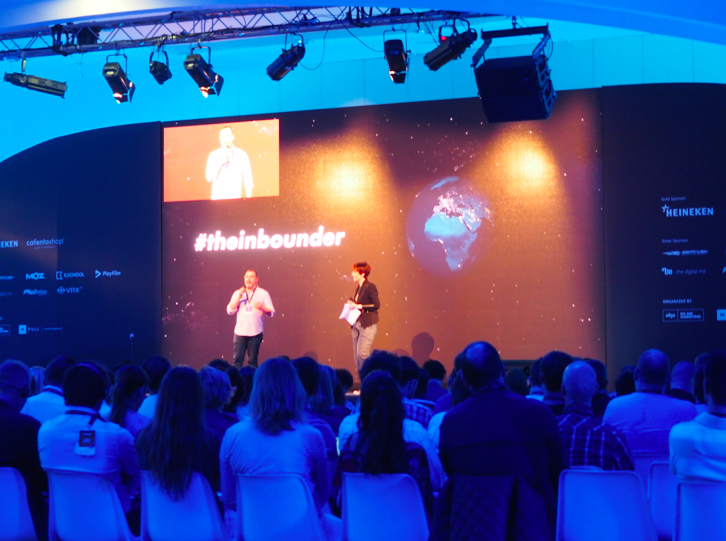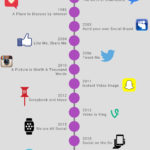How audience-centric is your organization?
One key theme emerged from The Inbounder marketing conference in Valencia, Spain, last week: Put the customer at the core or lose out. It’s something organizations all say they do, but now the customer is in control, and will vote with their click.
Last week I was fortunate enough to be in Spain’s sunny east coast at the futuristic City of Arts and Sciences in Valencia. The venue’s architecture offered a vision of the future, as did the A-list speakers over the two-day event.
The core theme was something that marketers all know, but not all live: the customer is king. More so now than ever.
This onus on the audience came from both the search and marketing folks. This is welcome news that requires cultural rethinking in many organizations: Think and act customer-first.
Your SEO strategy should focus on happy users. That’s what Google wants, according to Marcus Tandler from German SEO firm OnPage.org. Tandler reminded attendees that speed is now a major ranking factor across different browsers and platforms, as is dwell time. We’re now looking for the ‘long click’ users, who will spend longer on our site, but how do we achieve that?
Tandler advises:
– Satisfy the user’s needs
– Speed, speed, speed – users don’t wait any more
– Great user experience on all browsers/devices
– No broken links/pages
– No distractions, like pop-ups. I’m sure we can all relate to that!
He then challenged the audience to think about the quality of their own content.
“If your content would disappear from the web, would anyone miss it?” he asked.
Good question. Run a content audit, nurture what drives traffic and converts, and kill off that which doesn’t. See what content is impacting your site and bring in results.
Tandler also emphasised the need for video content, bullet points and clear fonts. Web users skim-read and hone into what they want to read. [Continues…]

City of Arts and Sciences, Valencia, Spain. Space-age setting of The Inbounder conference.
Focus on audience intent
Will Critchlow from digital marketing agency Distilled said the industry needed to think beyond keywords and look at user intent, especially with the rise in voice search. The next generation of searchers will not use text-like speak – they’ll speak normally into voice search.
Wil Reynolds, who demonstrated the value of understanding users’ questions, built upon this theme. If education results come up in search engine results pages (SERPs), marketers should focus on educating their audience over sales. Likewise, if news surfaces look at working with your PR team to get in that news, alter your site links according to common search.
I loved the part when Wil spoke about companies that use confusing corporate speak. This echoes my view that being a useful brand means speaking the language of our audiences. Marketers need to stop selling and start educating, that’s what organic search results demonstrate, Wil argued. If your audience does not understand your message, you’re doing it wrong. [Continues…]

Conference host, Gianluca Fiorelli, opens The Inbounder
Be authentic
A major part of putting the audience first is being an authentic brand. Organisations must be clear on what they stand for and understand human nature to be truly persuasive.
Lisa Myers’ impactful speech challenged audiences to think about why their brand does what it does. Brands know what they do and how, but rarely why. When it comes to persuasion, the decision is emotional. Myers explained that while the Neocortex area of the brain controls rationale and language, the ‘Limbic brain’ drives decision-making.
“Facts and figures don’t drive people to buy, ‘why?’ does,” Myers said. Her company, Verve Search, focuses all its work on these elements:
1) Does it support our vision and values? (Why)
2) Simple yet meaningful core idea (How)
3) Easy-to-use, great design and execution (What)
Campaign messaging and ads should be tailored to speak to each audience, and optimize headlines to increase curiosity and drive clicks.
Organisations also need to be ready to pivot strategies too, because “plans do not work in the battlefield,” she argued. From first-hand experience I agree, things evolve as campaigns develop, so “sticking to the plan” can actually be counterproductive. You need to be flexible.
Data critical to success
The use of data in public relations is key to understanding audiences. The way they speak, what interests them, where they’re communicating and what they are learning. How do you do this? By listening to them and thinking: how you can help them?
So I will ask again: How audience-centric is your organization?
If you would like to connect more effectively with your audiences, please get in touch.




Leave a comment:
You must be logged in to post a comment.